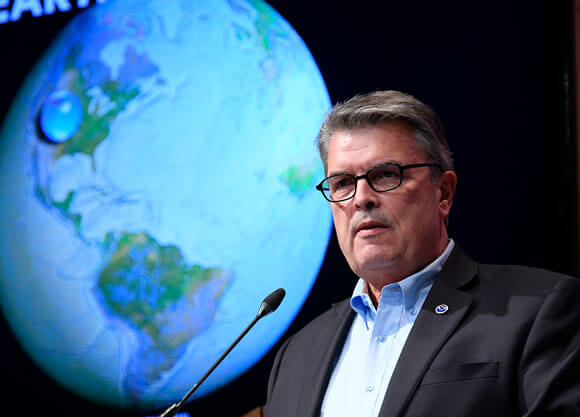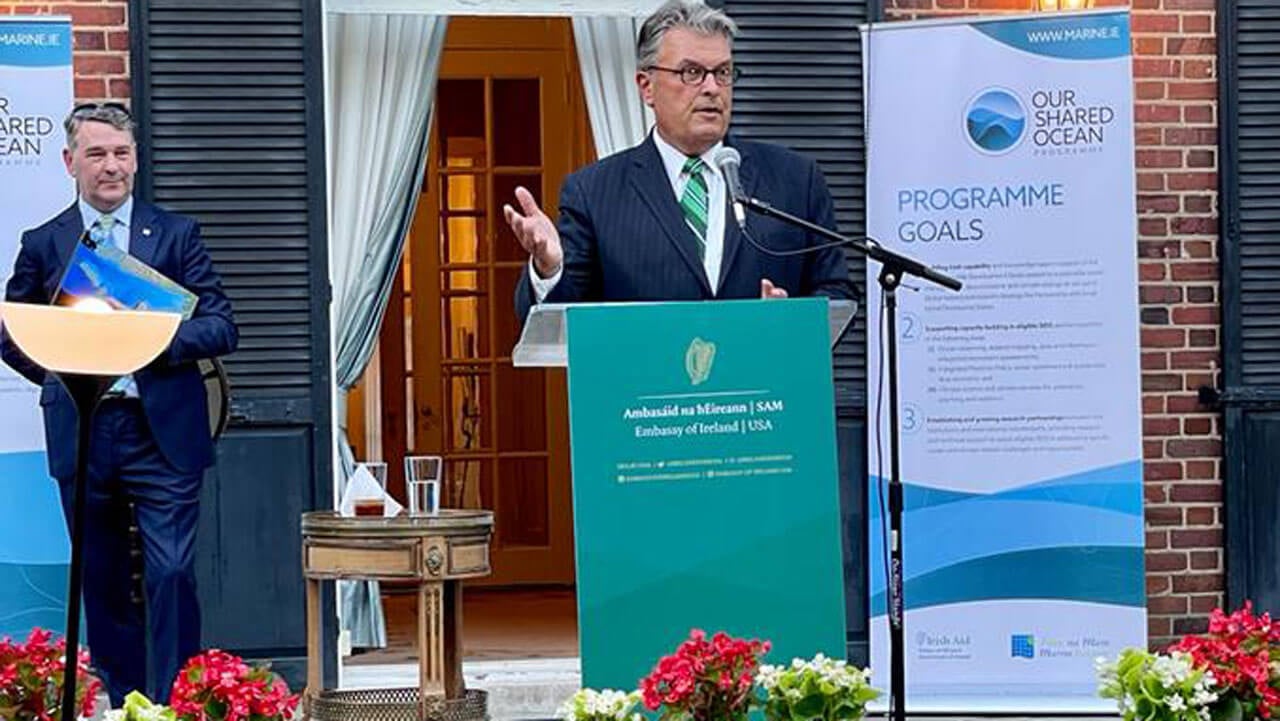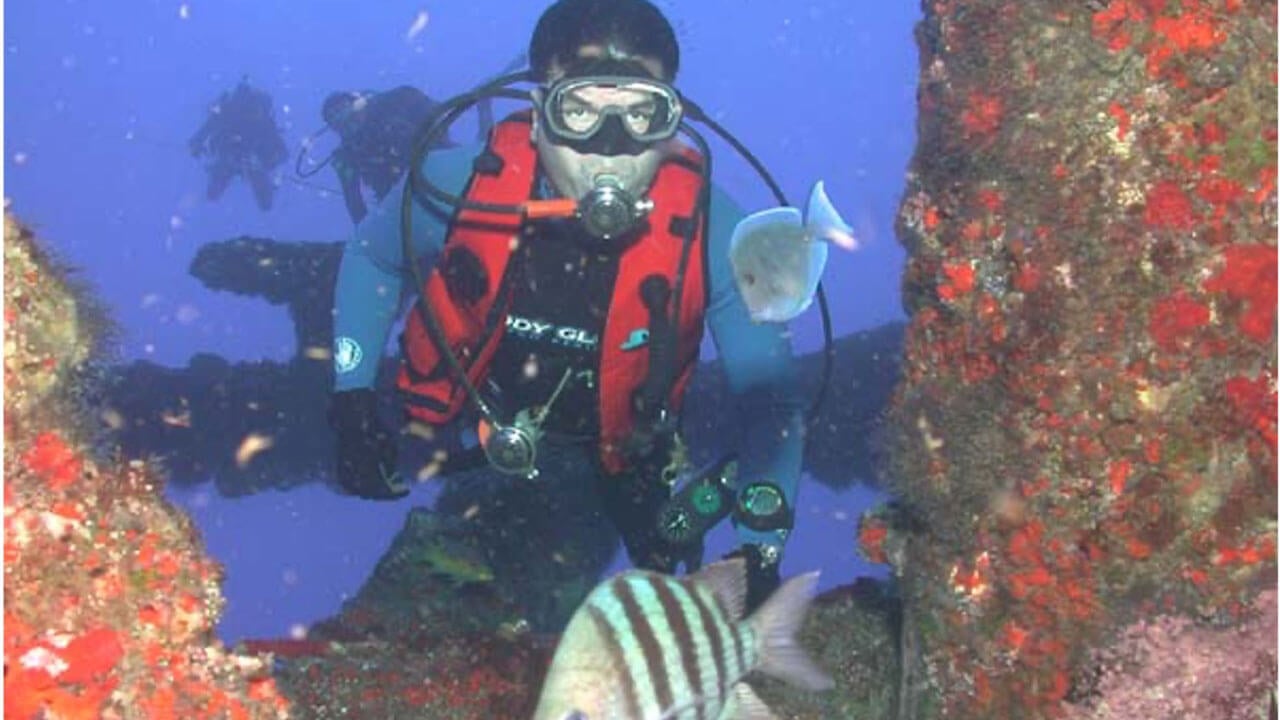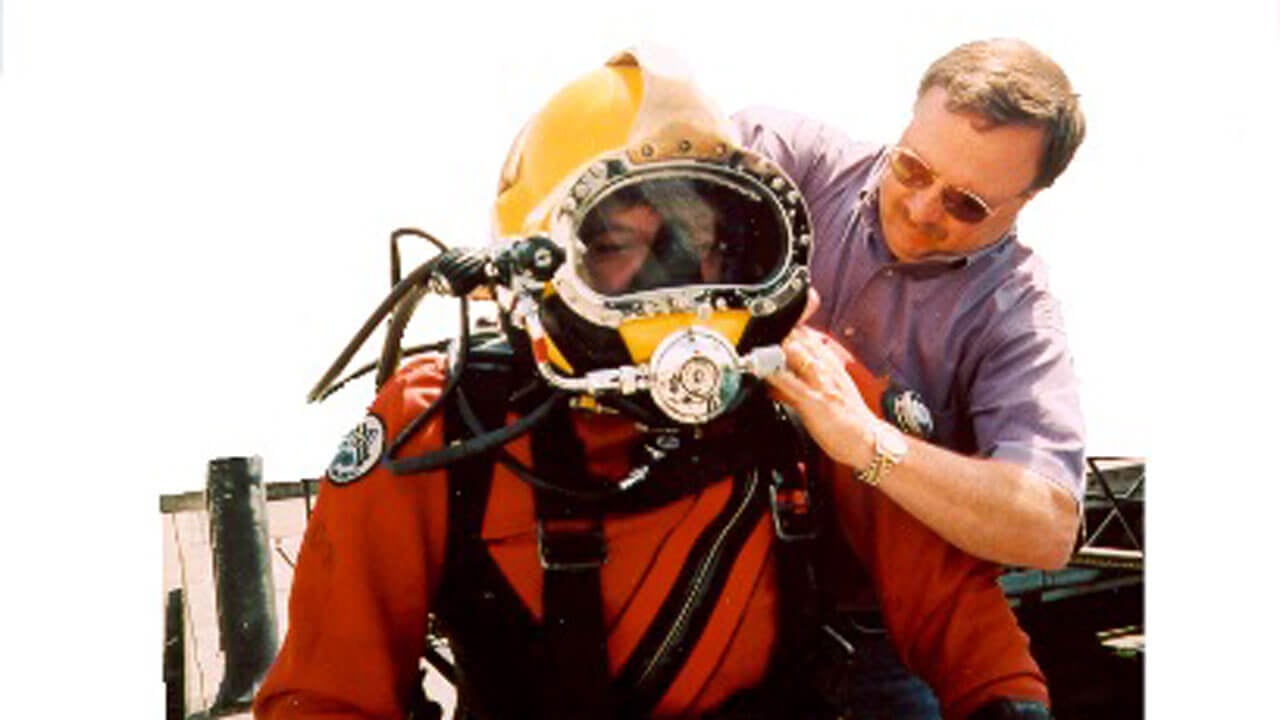
Alumnus draws on law degree to champion oceanic research, science integrity
Craig McLean, JD ’93, reflects on 40-year career with NOAA
August 24, 2022

August 24, 2022

Growing up on the banks of the Passaic River in Rutherford, New Jersey, his father was an early influence on his fascination and love of all things maritime. As a young boy, his humble ambition was to be a deck hand on a research vessel. He never dreamed he would one day captain a ship or rise to the senior levels of scientific administration for the country’s top oceanic agency.
This April, McLean retired as assistant administrator for oceanic and atmospheric research and acting chief scientist at the National Oceanic and Atmospheric Administration (NOAA). He dedicated his 40-year career to driving the exploration, protection and improvement of the world’s oceans. Along the way, he championed scientific integrity, diplomatic collaboration and marine conservation for the benefit of future generations.

NOAA is one of the seven U.S. uniformed services — the NOAA Commissioned Officer Corps — and oversees the National Weather Service (NWS). From daily weather forecasts, severe storm warnings and climate monitoring to fisheries management, coastal restoration and supporting marine commerce, NOAA’s products and services support economic vitality and affect more than one-third of America’s gross domestic product.
McLean began his career as a uniformed officer in the NOAA Commissioned Officer Corps in 1981 and served for nearly 25 years aboard fisheries, oceanographic and hydrographic ships, retiring from the NOAA Corps at the rank of captain. He then went on to serve the last 16 years in NOAA senior leadership positions.
As the NOAA assistant administrator, McLean helped to raise the public profile of NOAA’s ocean, weather, climate and Great Lakes research. During his tenure, he strengthened collaboration with the National Weather Service, National Marine Fisheries Service, and across the organization and accelerated the use of new research to improve NOAA’s forecasts and services to the public. He was also the founding director of NOAA Ocean Exploration, the only U.S. federal agency program dedicated to exploring the deep ocean.
After several years of serving in various administrative roles with increased responsibilities, McLean was commissioned by NOAA to pursue his law degree. He chose Quinnipiac School of Law.
“An admiral called me up one day and said, ‘I have a problem. I can make a lawyer out of ship driver, but I can’t make a ship driver out of a lawyer.’ He sent me to law school as my next assignment,” said McLean.
“I loved my time at Quinnipiac. I realized this was my opportunity to really impact the path of marine conservation. Lasting change doesn’t necessarily come from standing outside the board room with a sandwich sign. It’s inside the board room where the decisions are made. And you need to be able to make a persuasive argument in the appropriate way to get yourself heard.”
McLean has used his law school education and training in various law sectors, including fisheries, coastal and marine sanctuaries, while impacting legislation and serving as a legal advisor to the director of the NOAA Corps.
“I have used law and its principles, reasoning and training developed in law school every day of my career,” said McLean. “I learned how to be diplomatic and bring parties together, which you have to do routinely in law. And, quite often, I was able to prevail in persuasion because I know how to structure an argument, base it on a foundation of something that is already accepted, and then move it to the next new horizon to establish a new precedent, rule or otherwise. Law school was great preparation for a senior-level government career.”
McLean served for 11 years as the U.S. representative to the Intergovernmental Oceanographic Commission of the United Nations Educational, Scientific and Cultural Organization (UNESCO), a specialized agency of the United Nations, where he served as the U.S. representative, and for the U.S-European Union-Canada Galway Statement on Atlantic Ocean Cooperation. Most recently, he was recognized at the Irish Embassy for his visible commitment to scientific integrity and his work in establishing the All-Atlantic Research Alliance.
He was a leader in efforts to map all U.S. offshore waters to advance oceanographic knowledge and discover the ocean's secrets, including new species, historical shipwrecks and previously unknown undersea mountains. The goal is to map all the U.S. deep oceans by 2030.
“Without law, oration, clarity of expression, confidence of voice, without that which law had taught me, I don’t think I would have been as effective an advocate, not just for the U.S. position but for the right position of the entire global scientific community,” said McLean. “I presented a proposal on ocean mapping, bringing to the forefront that we were delinquent in the pursuit of knowing this planet. We have better maps of Mars than our own world. We brought others into the discussion and fast forward to today, we now have the U.N. Decade of Ocean Science for Sustainable Development. I am proud to have served in the initial formulation of the Decade, and it’s an area I plan to stay involved with during my retirement.”
During his NOAA tenure, McLean took part in several exploration missions, including the recovery of the USS Monitor turret and a return to the Titanic in 2004 with renowned explorer and personal friend Bob Ballard.
“It’s like watching a black and white photograph slowly develop in a dark room. As you dive, the boldest lines start to appear and then get stronger, the faintest details emerge, and the next thing you know, when you make your approach, it all comes into life. We bring the light with us, to the point where you’re seeing color, and it’s like a movie set when it’s lit up. It’s thrilling,” said McLean. “The first time I saw a sunken German U-boat off the East Coast, I was able to translate for myself that this amazing historical object is real. It’s not a photograph in a book.”

Through his work, McLean gathered evidence and testimony to respond to the congressional directive to protect the wreckage of the Titanic in the Atlantic Ocean. The ship, resting in two pieces, was discovered in September 1985, 400 miles from Newfoundland, Canada. The Titanic shipwreck is now protected under a UNESCO convention and U.S. law, both of which McLean was involved in creating.
“The dive was exciting, but it was also emotional. There is a solemn reaction to looking at a pair of shoes, so many pairs of shoes, lying adjacent to the Titanic on the ocean floor. You are seeing the last remains of that human form,” said McLean. “At the time, many had not realized that protecting the site included the ground around the structure. We determined that the maritime memorial of the Titanic is not necessarily the physical wreckage, but the debris around the ship, where materials, and people, had come to rest on the seabed.”
A defining moment of his career occurred in 2019 when McLean defended scientific integrity on the world stage. As Hurricane Dorian began to veer toward the U.S., McLean found himself compelled to speak out against the NOAA public statement criticizing weather forecasters who had corrected the White House warning that the hurricane would hit the state of Alabama. The controversy hit international levels and earned its own branding as “Sharpie-gate” by the mainstream media.
In an email to his more than 1,000 NOAA employees, with full knowledge that it would most likely go public, McLean made it plain that the press release statement was politically motivated. He knew that by blaming the error on the forecasters and not the outdated information reported by the White House, the government would erode the public’s confidence in one of the most important things they rely on daily, the weather forecast.
“To me, the issue was ethics,” said McLean. “I didn’t go on TV and talk about it. There was no need. They already had my email. And I didn’t send it to be a part of the political theater. It was the truth. I believe that throughout your career, you must pick a compass that will guide you ethically. Mine is grounded in the integrity, the ethics, all the things that we are taught as attorneys. I knew there would be repercussions for speaking out, and there were. But I believe that when you are in public service, you have to do the right thing and be honest above all else.”
An outside panel and internal government review sided with McLean and found that NOAA had violated its scientific integrity policy in criticizing its forecasters for making scientifically accurate statements. Since then, NOAA has worked to further strengthen its scientific integrity policy. The NOAA policy served as a model for President Biden’s Memorandum on Restoring Trust in Government, which included a Task Force on Scientific Integrity to ensure all federal agencies make evidence-based decisions guided by the best available science and data. McLean served on the Task Force until his retirement.
McLean has much to celebrate about his career, including many awards and recognitions, such as the Department of Commerce Silver and Bronze Medal and the Support of Science Award from the Council of Scientific Society Presidents for his defense of scientific integrity. His career has had a positive influence on addressing some of the world’s greatest challenges with generational impact. He helped to improve accurate weather forecasting, fostered a deeper understanding of marine life, elevated the importance of ocean exploration and worked with the scientific community to develop clear messaging on the impact of climate change.
“When it comes to climate change, we aren’t going to get every citizen to understand it. There are too many competing voices to distract us. What we need to do is deliver the relevant scientific applications that tell people where the future will be in the changing climate we have,” said McLean. “Mayors, governors and other officials will pay attention to those messages. We need to think about what society will need first and the relatable impact on such things as increased insurance for flooding or the impact on the municipal bond market. When they understand how it affects them personally, we will see the world change in the way we approach our climate.”

One of his proudest moments and an appropriate capstone to his illustrious career was receiving a letter from President Biden congratulating him on his retirement. The letter is now framed and hanging prominently in his home.
Five months into retirement, and McLean’s phone is still ringing. While there is much he will miss about NOAA, he says there will be a lot to gain in retirement. He is planning to stay involved as a sponsor for 25 marine policy fellows he has sponsored during his career through the National Sea Grant College program while remaining connected to the cause through his service on numerous panels. His hope is that he will be able to balance his continued involvement in supporting oceanic research with spending time with his family.
“It’s not compensated work, but I still enjoy contributing. I know I’m not the only guy in the world who can make a change. It’s a fool who thinks that any one individual can think better than the collective community. You need to listen to smart people to be able to move forward. I think that’s how I ended up with success in my career,” said McLean. “I have two grandkids now, and I don’t want their future to look like a Mad Max movie set. They are a motivator to continue my work and an inspiration to retire, both at the same time. I look forward to spending more time with them, but when it comes to this world and protecting our natural resources, there is still a lot of work to be done. I don’t want my grandchildren to look back one day and say they wish I had tried harder.”
Photo used with permission from NOAA.
Quinnipiac Today is your source for what's happening throughout #BobcatNation. Sign up for our weekly email newsletter to be among the first to know about news, events and members of our Bobcat family who are making a positive difference in our world.
Sign Up Now